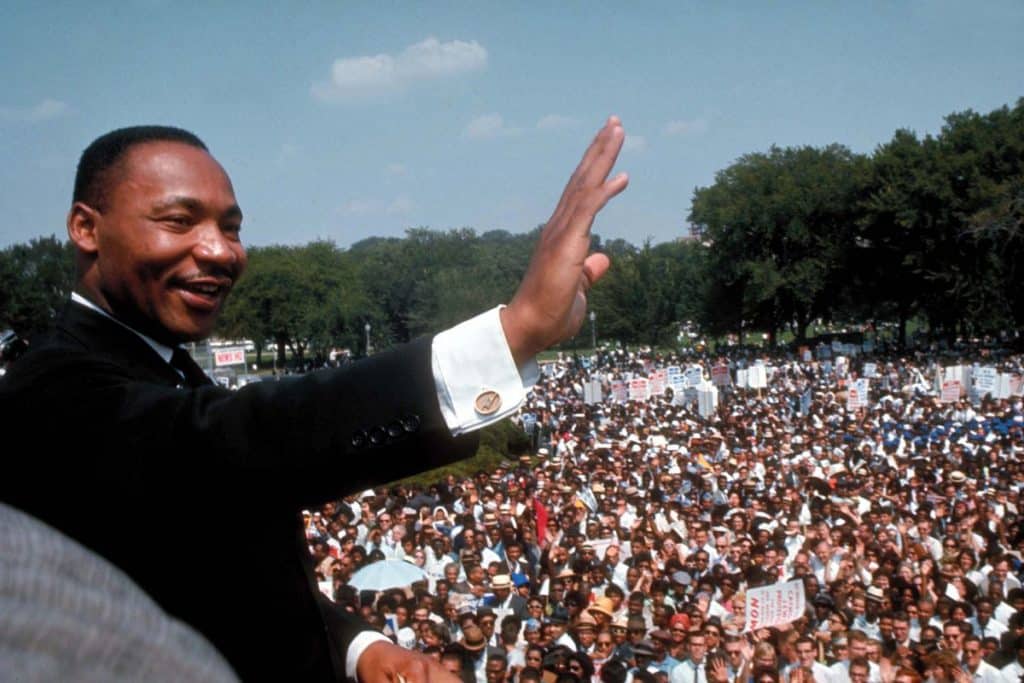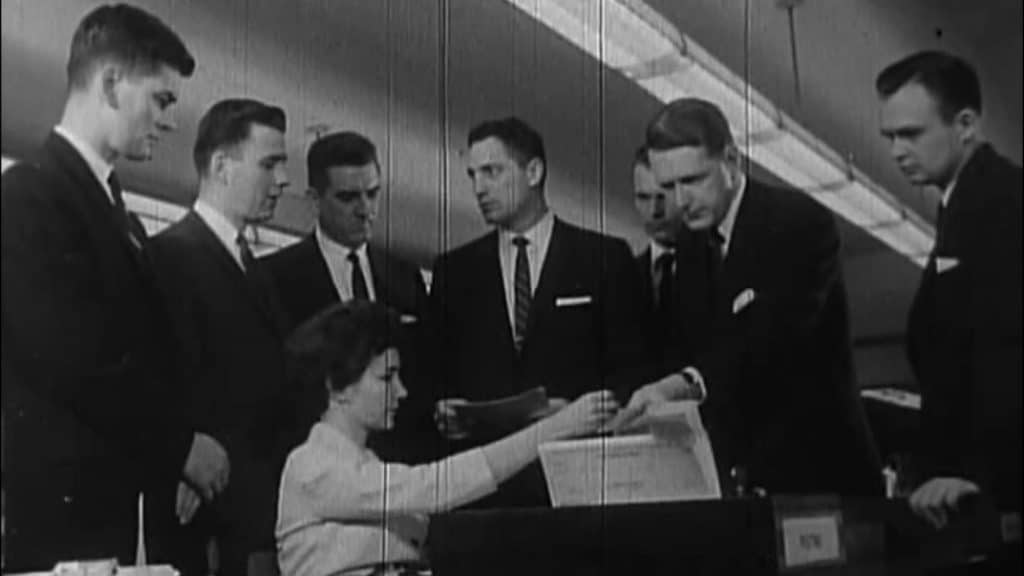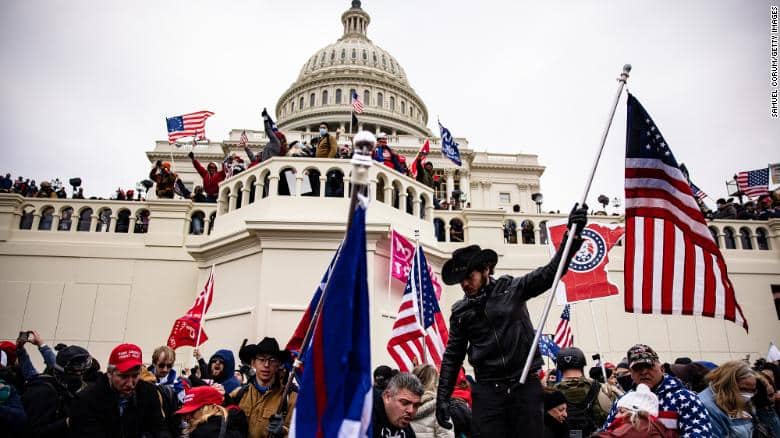Read also:
How to Watch FX Live Without CableHow To Watch AMC Without CableHow to Watch ABC Without CableHow to Watch Paramount Network Without CableMLK/FBI director Sam Pollard talks about assembling a doc in a pandemic and what the government response to varying revolutionary movements teaches us about the political chaos of today.
Based on newly declassified files, the documentary MLK/FBI (now out on demand) tells the story of how the FBI didn’t just monitor Dr. Martin Luther King Jr.’s every move during the Civil Rights Movement of the 1960s, but actively harassed him and tried to sabotage his work.
The Spool spoke with director Samuel D. Pollard a week after a mob of white supremacists stormed the Capitol as we were all awaiting news of a second Trump impeachment, a time when the subject of his film felt frighteningly relevant.
This interview has been edited for clarity and length.
THE SPOOL: The most obvious question is, why now?
POLLARD: I knew that Trump was gonna run for president. I knew that the world was gonna go crazy. (Laughs). No. In 2017, my producer read this book about Dr. King and the FBI and J. Edgar Hoover, and how they were surveilling, monitoring King in the ‘60s. He thought it was a great read, thought it would be a good film.
I got a copy of the book and I read it, and I completely agreed with him. And the writer of the book was a historian named Dave Garrow, who I knew from “Eyes On The Prize,” he was one of our consultants. So we reached out, we optioned this book, we went out to Pittsburgh, where he lives. We brought a camera crew with us. And we spent four hours with him, basically having him sort of give us the genesis of his book, what was in the book.
Everything he told us became the framework to help tell the story about Dr. King and the FBI, and Hoover. And then we went out and put together a sizzle reel, tried to raise funds, took a little bit of time, but not as much time It normally takes to be an independent documentary.

In 2019 two companies, Field of Vision and Play/Action came on board. They funded the film, and enabled us to do the rest of our interviews, hire an editor, and bring on archival producers. We started editing, gathering footage, archival footage, archival audio. We started editing in late November, early December 2019.
We went full throttle in January/February, and all of a sudden the pandemic hit us. So our editor had it moved upstate to her house and she was editing remotely, sending us material, sending us cuts. And Ben [Hedin] and I looked at the cuts. Ben was in Atlanta, I was in New York. [We] Give her feedback, she made changes.
Finally, we had a cut we were happy with. And we sent it off to the Toronto Film Festival in late July with our fingers crossed. And lo and behold, we got into Toronto. We got into New York Film Festival, we started getting into lots of festivals. So it’s been some kind of exhilarating ride.
Did you ever worry that, even though this topic is still relevant, that people would consider it a rehash? A lot of the public thinks not only do they know everything about Martin Luther King, but they already know about the FBI hounding him.
Well, no, not really. I mean, I think it’s always a challenge when you’re making these documentaries about subjects that have been explored before, to figure out how to tell it a different way. How do you take this footage that you’ve seen time and time and time again and give it another spin, another perspective? I think that’s the responsibility of a filmmaker, that you take this material and shape it into a different point of view.
Now I know full well that there’ve been many films on Dr. King, there’ll be more films on Dr. King. But the thing that’s always going to be different is that everybody who comes to the table, they’re gonna bring their own unique perspective. That’s what filmmaking is about.

Not only do you keep your focus solely on King, which so many other films don’t do, but you also keep, for lack of a better phrase, talking heads off and make use almost solely of archival footage. Why did you decide to rely so much on archival footage?
That was definitely one to keep the audience engaged. What happens sometimes when you’re doing these archival documentaries, you break the mood when you go to a talking head, and then you go back to the footage of the stills, and then you go back to talking and you break the mood.
I had seen a film called Black Power Mixtape by a Swedish filmmaker, and what was so compelling about that film was the fact that he didn’t see anybody on camera. He heard people like Angela Davis. I even think Cornel West was in it. I just heard their voices, but you were immersed in the material of the ‘70s Black Power Movement. I said to Ben, I think that’s the way we should approach telling the story.
It’s been done more in recent years. I even supervised the editing of a documentary a few years ago about Frank Sinatra, All or Nothing at All, and we had this phenomenal access to all this audio that Sinatra had done with his daughter, Tina, about his whole life. We used that to tell the story. And then we interviewed other people. We only did audio. It was really this audio journey, which was enhanced by all this fantastic footage of Sinatra telling that story. That’s the same approach we took with MLK/FBI.
This film should be a wake up call.
Do you ever think that the way law enforcement looks at civil rights movements will ever change? Normally I’m more optimistic, but it seems to have been the same now as then.
I think this is one thing we always have to remember about America, and about any place where the government’s in power. Any time organizations, be they nonviolent organizations, be they organizations that are proposing violence, the powers that be will look at them very closely, because they see them as radicals. They see them as possibly initiating some kind of change that is going to undo the fabric of American democracy. So they’re always monitoring, surveilling the people.
In the Black Lives Matter movement, there must be informants, because the government is going to keep contact. They’re going to keep monitoring these organizations because they’re concerned about radicalizing human beings, who wake up from this stupor, all of us who have been co-opted by television and commercials and making money and having a living and getting a car and having a nice house and stuff. Understanding that sometimes all these things are used to pacify us and keep us in our place.
So we don’t ask questions. We don’t challenge the status quo, you know? But it’s complicated, America. On the one hand, they’re monitoring us, but on the other hand, they’re not monitoring people, like those people who attacked the Capitol last week, who obviously were being emboldened to attack.
From the moment they attacked, when that violence was literally on their doorstep…
Exactly. You know, the FBI, they knew this was gonna happen. Social media is so pronounced that the FBI is monitoring everybody.

Even if they had wanted to stop it, do you think they would have taken any action to stop it?
I’m not sure they would have. I think this is the tragedy of America sometimes, from my perspective. America seems to be more fearful of a bunch of Black people and people of all stripes who are part of the Black Lives Matter movement coming to Washington, DC, where they bring out, you know, a tremendous amount of force. You saw that shot last week of the National Guard standing by the Capitol, but somehow the idea of a crowd of white people going down to the Capitol, doesn’t seem as threatening because they didn’t have that sufficient amount of force. It needs a deep investigation in America.
One of the things that gave me hope is a vast array of people pointed this out.
You know what gave me hope? When Liz Cheney got up and said she isn’t in line with her team and impeaching this President. Now, you know what I think about her small group. [Laughing.] I don’t have to tell you what I think about Dick Cheney. But to get her to stand up… she understands what happened last week.
I imagine most filmmakers want their films to be timely. But I bet you didn’t want your film to be this timely.
I was sure it would resonate, because, you know, America is a very complex issue. But who knew it would have such impact? I didn’t think that would happen at all.
What do you think people can do to change things right now at this pivotal moment?
Watch MLK/FBI and reflect on America in the ‘60s, one of the most tumultuous periods in our history, and then reflect on who we are as Americans today. And what we need to do to be able to see the things like we saw last week doesn’t happen again. Look at this history and realize that what we saw wasn’t an anomaly. This film should be a wake up call.